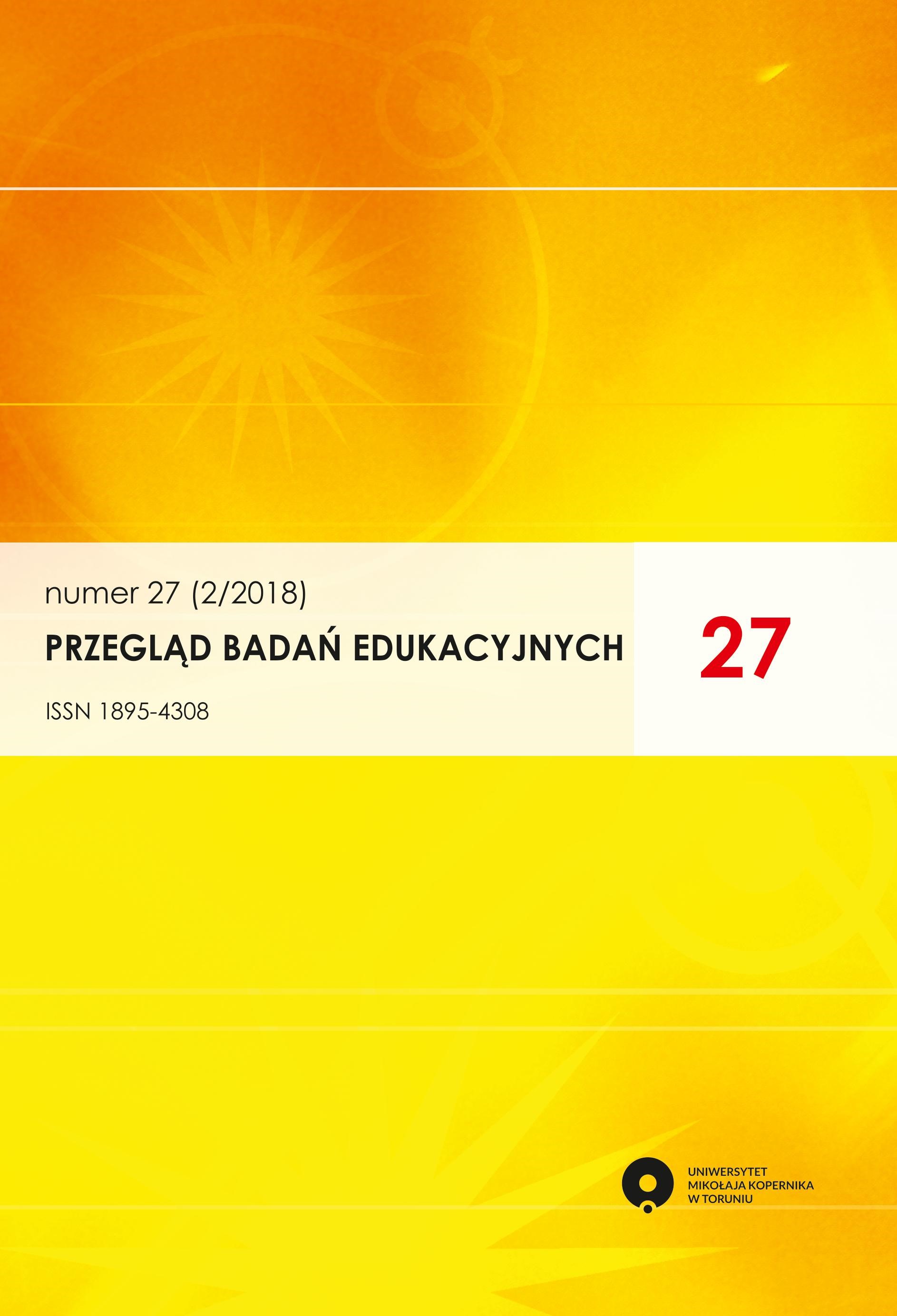The Teacher’s Presence in Online Learning Community/Obecność nauczyciela w internetowej społeczności uczącej się
DOI:
https://doi.org/10.12775/PBE.2018.015Słowa kluczowe
teacher, social network, presence on the Internet, pedagogy of place, e-learningAbstrakt
This paper reports the results of a survey study aimed at diagnosing the presence of teachers in the educational space of the Internet. The theoretical basis for the considerations are the assumptions of the pedagogy of place. It implies the ability to create new places of learning, including the world of the cyberspace, so often used by students. The question of the presence of the teacher on the Internet has become an important issue in pedagogical sciences, and in the wider field of social science. 182 Polish teachers from the Kuyavian-Pomeranian region participated in the described study. The obtained data allowed to indicate “Internet places” frequently visited by the surveyed teachers, to determine their interests for supplementing and updating their digital competences using forms of e-learning, for the cultural and creative activities and promoting their creations and exchange of experience on the Internet with particular emphasis on social media. The conclusions contain important premises for educational practice indicating the need to take pedagogical reflection by the teacher and to run concrete actions promoting humanistic values, to support students’ online activities, to make them aware of the importance of critical thinking and conscious and responsible publication of the content on the Internet. As it turns out, the surveyed teachers want to be present on the Internet, use its resources and communication services; unfortunately, their involvement in the pedagogisation of the Internet space and the promotion of their own substantive and methodological achievements in the cyberspace is still minor.
Bibliografia
Al-Rahmi, W. M., Othman, M. S., Yusuf, L. M. (2015). Using Social Media for Research: The Role of Interactivity, Collaborative Learning, and Engagement on the Performance of Students in Malaysian Post-Secondary Institutes, Mediterranean Journal of Social Sciences, vol. 6, nr 5, s. 536–546, DOI: http://www.mcser.org/journal/index.php/mjss/article/view/7675.
Anchan, J. P., Halli, S. S. (2003). Exploring the Role of the Internet in Global Education, Lewiston, New York: Edwin Mellen Press.
Castells, M. (2010). Społeczeństwo sieci. Warszawa: Wydawnictwo Naukowe PWN.
Czaja, D. (2013). Inne przestrzenie, inne miejsca. Mapy i terytoria. Wołowiec: Wydawnictwo Czarne.
Drašković, N., Korper, A. K., Kilian-Yasin, K. (2017). Student attitudes toward use of social media in the learning process: A comparative study of Croatian and German students, International Journal of Management Cases, 19(2), http://bib.irb.hr/datoteka/858735.Draskovic_Kustrak_Kilian_Yasin_IJMC_19.2.pdf.
Foucault, M. (1984). Of Other Spaces: Utopias and Heterotopias, Architecture /Mouvement/ Continuité, translated from the French by Jay Miskowiec “Des Espace Autres,” http://web.mit.edu/allanmc/www/foucault1.pdf.
Horrigan, J. B. (2006). The Internet as a Resource for News and Information about Science, http://www.pewinternet.org/files/old-media/Files/Reports/2006/PIP_Exploratorium_Science.pdf.
Williams, P., Rowlands, I. (2007). Information behaviour of the researcher of the future – a CIBER briefing paper, London: University College London (UCL), s. 29, http://www.jisc.ac.uk/media/documents/programmes/reppres/gg_final_keynote_11012008.pdf.
Jasiewicz, J., Batorski, D., Kisilowska, M., Mierzecka-Szczepańska, A., Luterek, M. (2013). Nowe media w polskiej szkole. Wyniki badań, projekt zrealizowany przez Polskie Bractwo Kawalerów Gutenberga, Kompetencje cyfrowe nauczycieli i wykorzystanie nowych mediów w szkolnictwie podstawowym, gimnazjalnym i ponadgimnazjalnym – diagnoza. http://www.regionalneobserwatoriumkultury.pl/tl_files/olek/Nowe%20media%20w%20polskiej%20szkole%20-%20wyniki%20bada.pdf.
Mendel, M. (red.) (2006). Pedagogika miejsca. Wrocław: Wydawnictwo Naukowe Dolnośląskiej Szkoły Wyższej Edukacji TWP.
Piotrowski, Ch. (2015). Emerging research on social media use in education: a study of dissertations, Research in Higher Education Journal, vol. 27, http://www.aabri.com/manuscripts/142097.pdf.
Prensky, M. (2001). Digital Natives, Digital Immigrants – A New Way To Look At Ourselves and Our Kids. On the Horizon, vol. 9 nr 5, s. 1–6, https://doi.org/10.1108/10748120110424816.
Prensky, M. (2001). Digital Natives, Digital Immigrants, Part II: Do They Really Think Differently? On the Horizon, vol. 9, nr 6, s. 1–6, https://doi.org/10.1108/10748120110424843.
Siemieniecka, D., Siemińska-Łosko, A. (red.) (2007). Technologia informacyjna w pracy dydaktycznej i innowacyjnej nauczyciela. Toruń: Wydawnictwo Adam Marszałek.
Siemieniecki, B. (2012). Rzeczywistość wirtualna a edukacja (s. 11-31). W: T. Lewowicki, B. Siemieniecki (red.), Cyberprzestrzeń i edukacja. Toruń: Wydawnictwo Adam Marszałek.
Siemieniecki, B. (2003). Technologia informacyjna w polskiej szkole: stan i zadania. Toruń: Wydawnictwo Adam Marszałek.
Soja, E. W. (2002). Thirdspace: explanding the scope the geographical imagination (s. 13-30). W: A. Read (red.), Architecturally Speaking: Practices of Art, Architecture, and the Everyday, London – New York: Taylor & Francis Routledge e-Library.
Tapscott, D. (2010). Cyfrowa dorosłość. Jak pokolenie sieci zmienia nasz świat. Warszawa: WAIP.
Wrońska, A., Borkowska, A. (2017). Co młodzież robi w Sieci? Wyniki badań „Nastolatki 3.0”. Serwis Informacyjny UZALEŻNIENIA, nr 79 (3/2017), http://siu.praesterno.pl/artykul/570.
Pobrania
Opublikowane
Jak cytować
Numer
Dział
Statystyki
Liczba wyświetleń i pobrań: 728
Liczba cytowań: 0



